Jake Buehler
Jake Buehler is a freelance science writer, covering natural history, wildlife conservation and Earth's splendid biodiversity, from salamanders to sequoias. He has a master's degree in zoology from the University of Hawaii at Manoa.

Trustworthy journalism comes at a price.
Scientists and journalists share a core belief in questioning, observing and verifying to reach the truth. Science News reports on crucial research and discovery across science disciplines. We need your financial support to make it happen – every contribution makes a difference.
All Stories by Jake Buehler
-
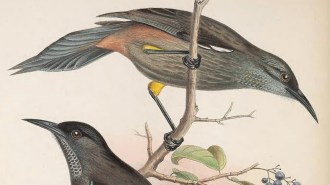 Life
LifeA sixth mass extinction? Not so fast, some scientists say
A new analysis suggests that recent extinctions have been rare, limited mostly to islands and slowing. But others argue this is all just semantics.
-
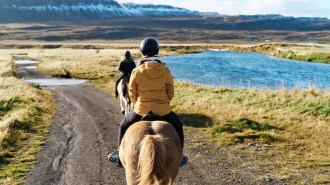 Life
LifeHorses may have become rideable with the help of a genetic mutation
To make horses rideable during domestication, people may have inadvertently targeted a mutation in horses to strengthen their backs and their balance.
-
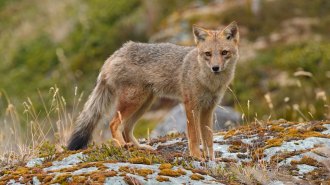 Animals
AnimalsThe mysterious, extinct ‘Fuegian dog’ was actually a semi-tame fox
Historic European accounts long described the canids as domesticated dogs. A new study suggests that’s probably not true.
-
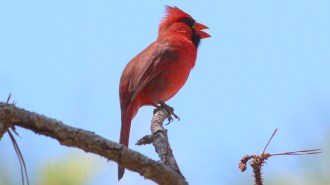 Animals
AnimalsAround the world, birds sing longer in light-polluted areas
In light-polluted landscapes, birds' singing time is an average of 50 minutes longer per day. It's still unclear if this hurts bird health or helps.
-
 Humans
HumansA child’s biological sex may not always be a random 50-50 chance
Some people’s biology may set them up to birth babies of a certain sex, explaining why a family with multiple children may have all girls or all boys.
-
 Animals
AnimalsGreenland sled dog DNA is a window into the Arctic’s archaeological past
A genomic analysis of Greenland’s Qimmeq dogs suggest they and their human partners arrived on the island centuries earlier than previously thought.
-
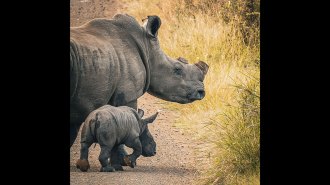 Animals
AnimalsPreemptively cutting rhinos’ horns cuts poaching
Comparing various tactics for protecting rhinos suggests that dehorning them drastically reduces poaching.
-
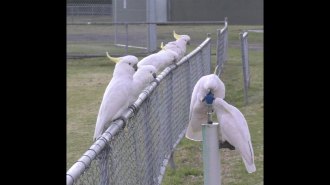 Animals
AnimalsAussie cockatoos use their beaks and claws to turn on water fountains
Parrots living in Sydney have learned how to turn on water fountains for a drink. It's the first such drinking strategy seen in the birds.
-
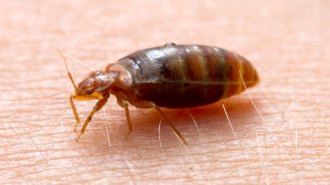 Animals
AnimalsBedbugs may have been one of the first urban pests
Common bedbugs experienced a dramatic jump in population size about 13,000 years ago, around the time humans congregated in the first cities.
-
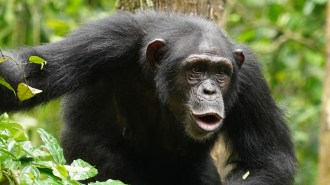 Animals
AnimalsChimp chatter is a lot more like human language than previously thought
Chimpanzees combine hoots, calls and grunts to convey far more concepts than with single sounds alone. It may be a first among nonhuman animals.
-
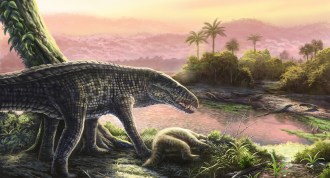 Paleontology
PaleontologyThese crocodile-like beasts reached the Caribbean, outlasting mainland kin
Knife-toothed reptiles called sebecids went extinct on the mainland 10 million years ago. New fossil evidence puts them on an island 4 million years ago.
-
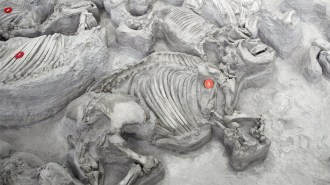 Paleontology
PaleontologyAncient, water-loving rhinos gathered in big, hippolike herds
Squat rhinos lived in North America about 12 million years ago, congregating in huge, water-bound herds much like modern hippos.